


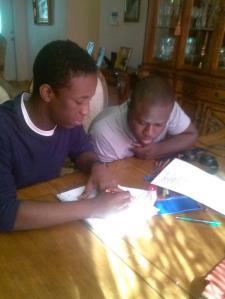
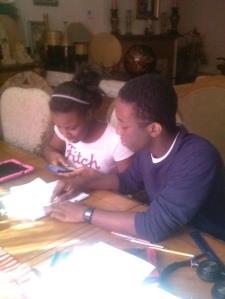
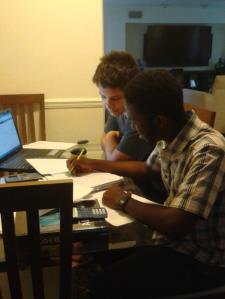
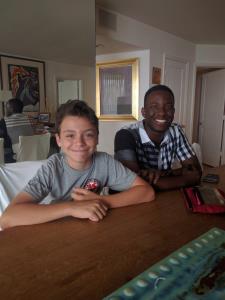

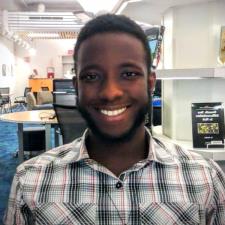
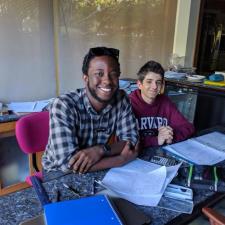
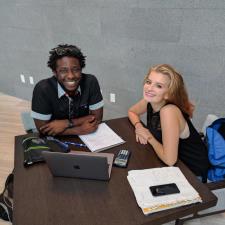
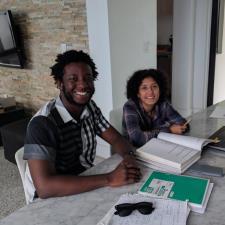
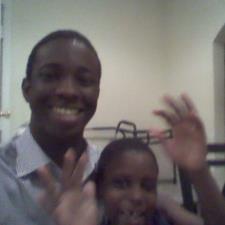
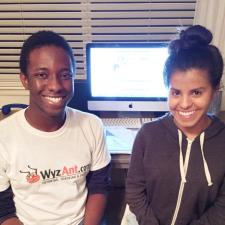
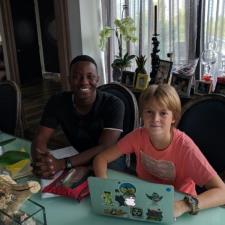
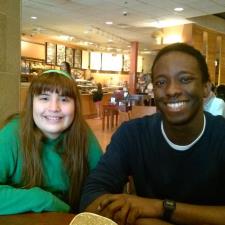
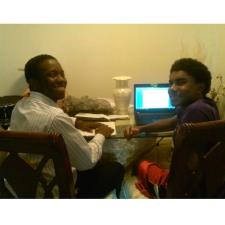
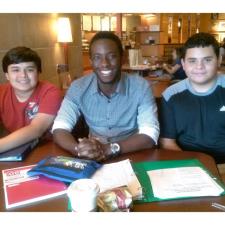
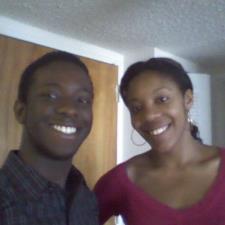
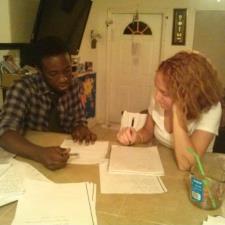























Featured Review:
Professional & Above Reproach
Johnathan, 1 lesson with ReimskyReimsky's professionalism and attention to detail is above reproach. His ability to breakdown concepts into logical and understandable pieces of information really allowed me to gain a better grasp of my subject matter. To anyone in doubt about his track of success, trust me, I'm a believer, and you will be, too. I would very-strongly recommend him, and work with him in the future for any tutoring needs that I may require. 5-Stars !
SERVICES AND POLICIES
I am a Computer Engineering major at FIU. I specialize in teaching Mathematics. I also help with: essay writing, French, Haitian Creole, and academic Spanish. I have been tutoring since 2010.
Areas where I can provide the best help are: Pre-Algebra, Algebra 1, Algebra 2, Geometry, College Algebra, SAT-Math, ACT-Math, PERT prep math, EOC prep Algebra and Geometry, French (all levels), Spanish class at any level.
I am very efficient at explaining notions and singling...
Loading...
Reimsky has provided examples of their subject expertise by answering 6 questions submitted by students on Wyzant’s Ask an Expert.
Professional & Above Reproach
Reimsky's professionalism and attention to detail is above reproach. His ability to breakdown concepts into logical and understandable pieces of information really allowed me to gain a better grasp of my subject matter. To anyone in doubt about his track of success, trust me, I'm a believer, and you will be, too. I would very-strongly recommend him, and work with him in the future for any tutoring needs that I may require. 5-Stars !
Johnathan, 1 lesson with Reimsky
Very helpful and kind
First time using Wyzant with Reimsky. Very responsive in communication and helped my son understand math questions and concepts he was struggling with in class. Will return for future lessons. Thank you.
Kimber, 1 lesson with Reimsky
Expert at what he does!
Awesome tutor! I will not use anyone else! He helps my teen understand the concepts which in return helps my son ace his tests!!!
Cassie, 6 lessons with Reimsky
Expert at what he does!
Awesome tutor! I will not use anyone else! He helps my teen understand the concepts which in return helps my son ace his tests!!!
Cassie, 6 lessons with Reimsky
Available
Mr Reimsky is very accommodating to my schedule. It seems like he is. Available 24 hr a day lol. I always do well on my test after his sessions. I wish he was my French teacher.
Brittany, 12 lessons with Reimsky
Knowledgeable and relatable
Quickly connected with my son and was able to identify areas where my son needed assistance. My son left the session feeling much more prepared with a much better understanding
Robert, 2 lessons with Reimsky
Exceptional Service
I had a Spanish lesson with Reimsky, and he was knowledgeable and patient. He took the time to listen to what I wanted, and he was of tremendous help. He did an excellent job, and I would use his services again. Great tutor!
Theresa, 3 lessons with Reimsky
Patient, great teacher
Mr. T has been a consistent teacher. His efforts exceeds what the teacher does in her Algebra I class. Our daughter is feeling more confident and it shows in her effort in Algebra I. He provides notes that allow her to reference later. We appreciate his patience and flexibility.
Delecia , 54 lessons with Reimsky
Awesome tutor
Reimsky was very friendly, knowledgeable, and patient. I’m very excited to continue my journey learning Haitian Creole, both the language and about the culture.
Brittny, 6 lessons with Reimsky
Excellent Tutor
In just a few weeks with Reimsky, my daughter's confidence in Algebra has significantly improved, and her grades have noticeably improved as well!
Gabriela, 47 lessons with Reimsky